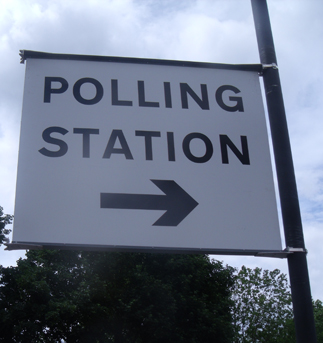Election candidates are being issued with guidance to help them respond if they experience intimidatory behaviour or abuse during the election campaign to December 12.
Guidance for Candidates in Elections – when it goes too far advises on the actions or behaviours that could constitute a criminal offence, when to contact 999, and what candidates can do to protect themselves. Candidates are advised to:
– engage with their single point of contact within their local force for candidate security;
– take active steps around personal safety to keep themselves and their campaign staff safe;
– not to canvass alone and make sure someone knows where they are canvassing;
– keep records of any intimidating behaviour or abuse;
– conduct an online health check to ensure sensitive personal information is not widely available; and
– report intimidation or abuse to internet service providers and social media.
It has been jointly developed by the National Police Chiefs’ Council (NPCC), the Electoral Commission, the College of Policing and the Crown Prosecution Service (CPS), and forms part of official candidate packs issued by the Cabinet Office. National Police Chiefs’ Council Chair, Martin Hewitt said: “As with every election, police will work to prevent and detect crime, and enable the democratic process to proceed unhindered. We take this role extremely seriously. Abuse or intimidation of candidates in elections has serious implications for individuals and for our democracy. Practical guidance issued today will help candidates stay safe on the campaign trail. All police forces will offer security briefings for candidates and have a senior officer responsible for this.
“Strong and varied views are the mark of a healthy democracy, but these should not cross the line into criminal abuse, harassment or disorder. There are serious penalties for those who are found guilty of criminal offences. We’re not going to tell anyone to limit their campaigning or enthusiasm in any way – but we are taking precautionary steps ourselves and providing sensible advice to candidates.”
Police forces say they are to provide a tailored response to candidates including providing security briefings and assigning senior single points of contact for candidate security. The NPCC will oversee reports and incidents at national level. The Parliamentary Liaison and Investigation Team (PLaIT), a national unit set up by the Metropolitan Police after the 2016 murder of Labour MP Jo Cox is also at work with local forces.
For the 11-page document, visit https://www.dyfed-powys.police.uk/media/8687/joint-guidance-for-candidates-in-elections-2019.pdf.
Background; a man who sent a threatening letter to Anna Soubry has been jailed for 12 months, at Sheffield Crown Court; see case on CPS website.









